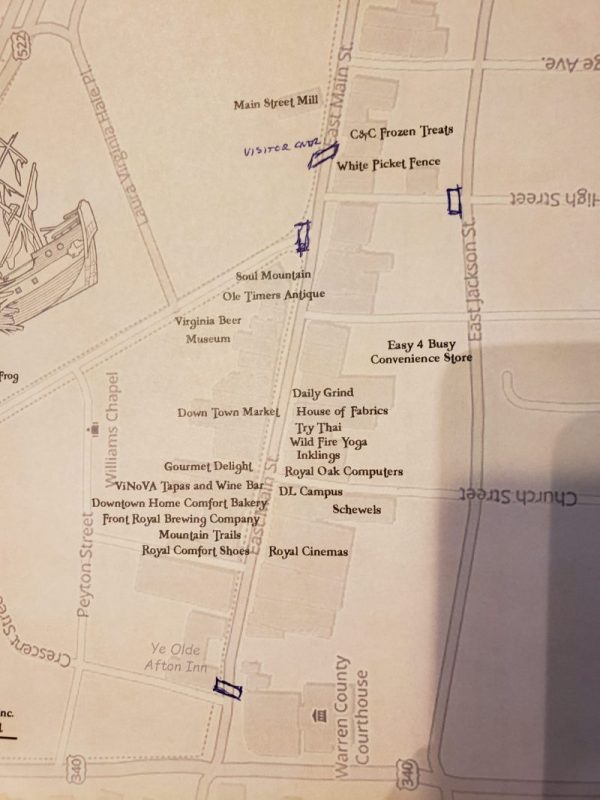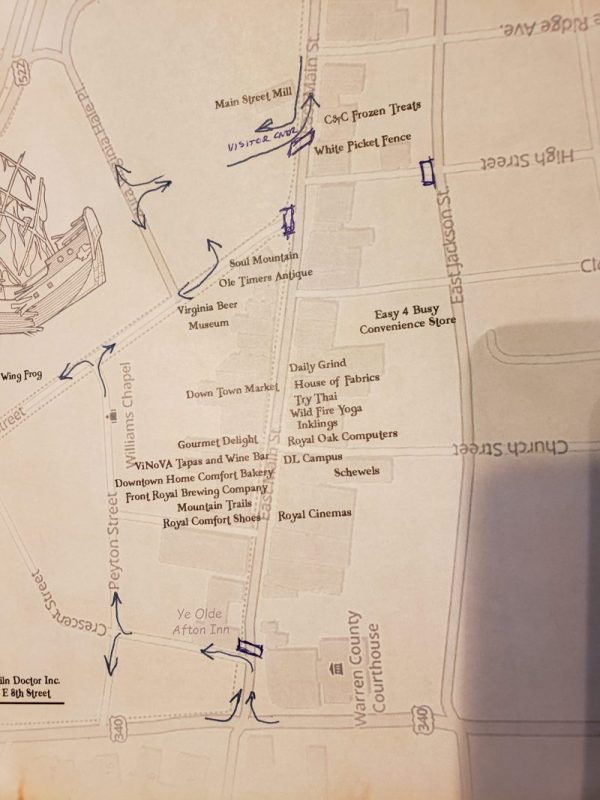Opinion
Walking Mall Weekend – proposed traffic flow/parking work-around
To the Front Royal Business Community,
I hope everyone had a great weekend, even with the bad weather that rolled through. I was glad to see some businesses out and I hope you all saw the increase in foot traffic (and saw the benefit of it).
Now, I hate to ask this with all the controversy that has taken place over the past weeks, but I need your help. Please hear me out. And yes, as always, your comments are welcome.
We have been outspoken proponents of the Walking Mall since its inception. We’ve talked to so many people about the pros and cons, tried to make concessions and compromises where we were able and spent countless hours and many personal dollars to make this work… for the benefit of the town, the citizens, the businesses, and the community as a whole.
It’s been a lot of work but it was ‘happy work’, until this past weekend when we read in the paper that we were not to be included in the walking mall after this week.
Like many of you, I have set up a canopy, invited people into my shop, set up games and things to help occupy the kids who get bored in town with nothing else to do while the parents are eating or shopping or visiting. With the help of the owners of C&C Frozen Treats, we’ve tried to maintain a festive atmosphere to attract Warren County residents, as well as those from out of town to help our struggling fellow business owners.
My shop, sadly, is not “in the heart of things” and at times, only gets a second glance when people walk past on their way to have some great ice cream. If this end of Main Street is open to traffic, we won’t even get that second glance.
Parking has always been an issue here when there are festivals, etc, on Main St, and I know that was a large concern for some businesses when the Walking Mall began. From day one, we’ve said the parking signs should be priority parking signs and signs that actually say “Closed for Walking Mall” or something to that effect. Traffic flow has been something else that was mentioned as a concern for out-of-towners.
William Huck proposed a traffic flow/parking work-around that I wholeheartedly agreed with. After the town council meeting last week, I shared that plan with a member of the council. What we all heard during the meeting was that things would stay “as they are” through Labor Day, however, that was not carried through in Mr. Tedrick’s edict published by the newspaper last week.
When a town council member stopped me this morning, I told him I hadn’t appreciated that the decision of the council was to close Main Street (on my end of the street) at the clock area, leaving Chester St and Main St in front of my businesses open to traffic. His reply was that was NOT what he came away with after last week’s meeting.
To make a long story longer, we asked Mr. Tedrick to meet with us in front of the White Picket Fence to give him a visual of what our proposal was. So along with Will and the council member, we explained to Mr. Tedrick that closing the street from 405 Main to the Gazebo lot entrance would allow traffic to flow back to Main without impacting our walking mall activities.
Mr. Tedrick, who said he had no plans to change things until after Labor Day, said he had no choice because of the feedback from council members but to change that decision to take immediate effect (meaning this weekend, East Main would be open to traffic at Chester). Albeit, with the exception that he was asked to close High Street for Manor Line Market. The only thing (he said) that would change his mind is a request from 4 members of the town council asking for a redirection of his mandate.

Where we have asked barricades to be placed.

And another photo of potential traffic flow.
Please voice your opinion on these. My hope is that with your help, we can continue to be included and allowed to set up our canopy, allowed to step off the curb, and let children and adults enjoy a game of chess or checkers or draw with chalk on the street.
Sue Laurence
Front Royal, Virginia
